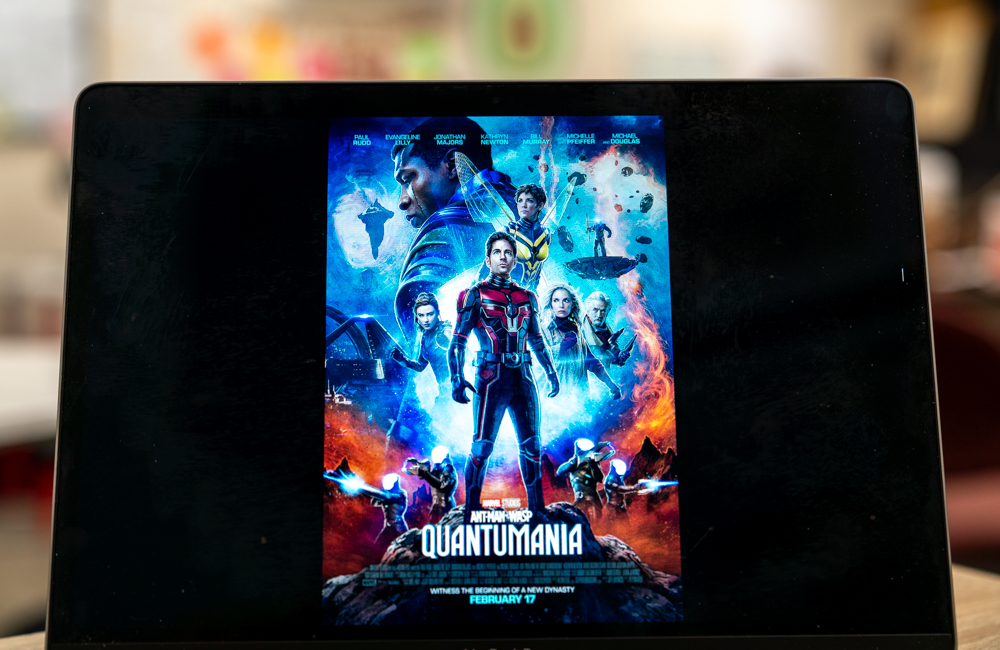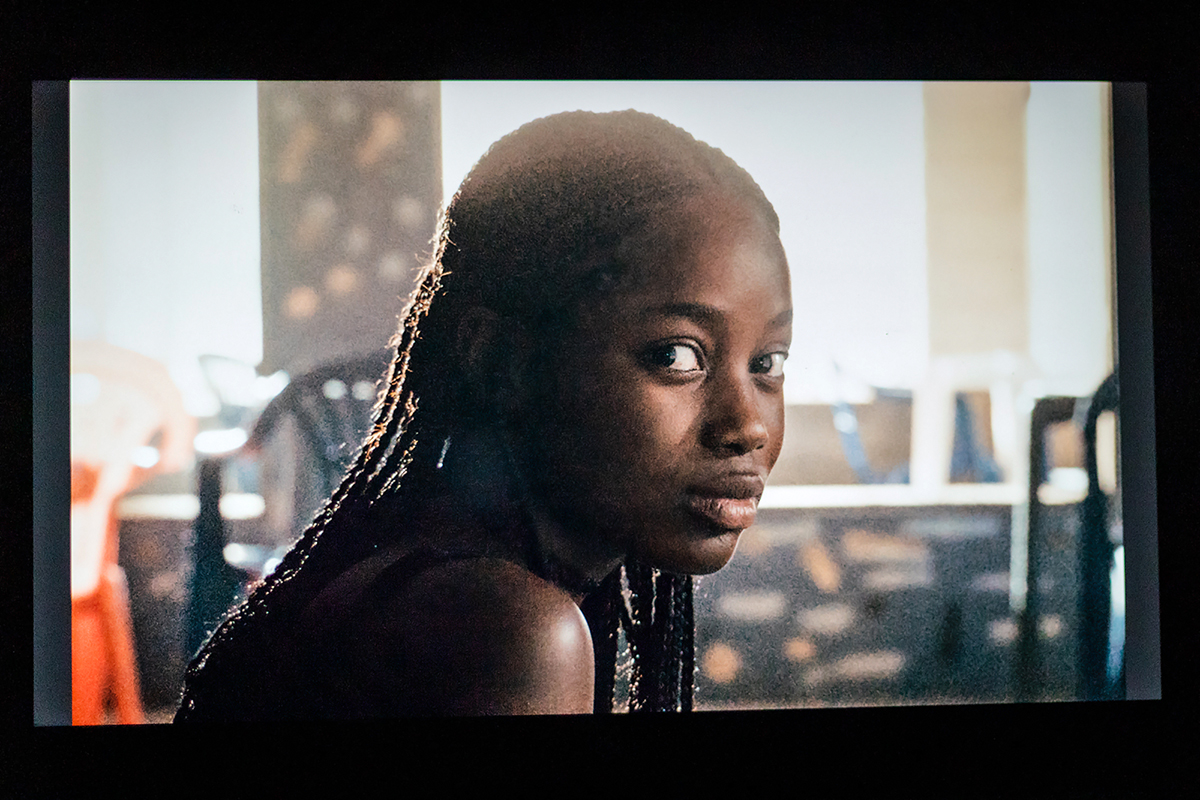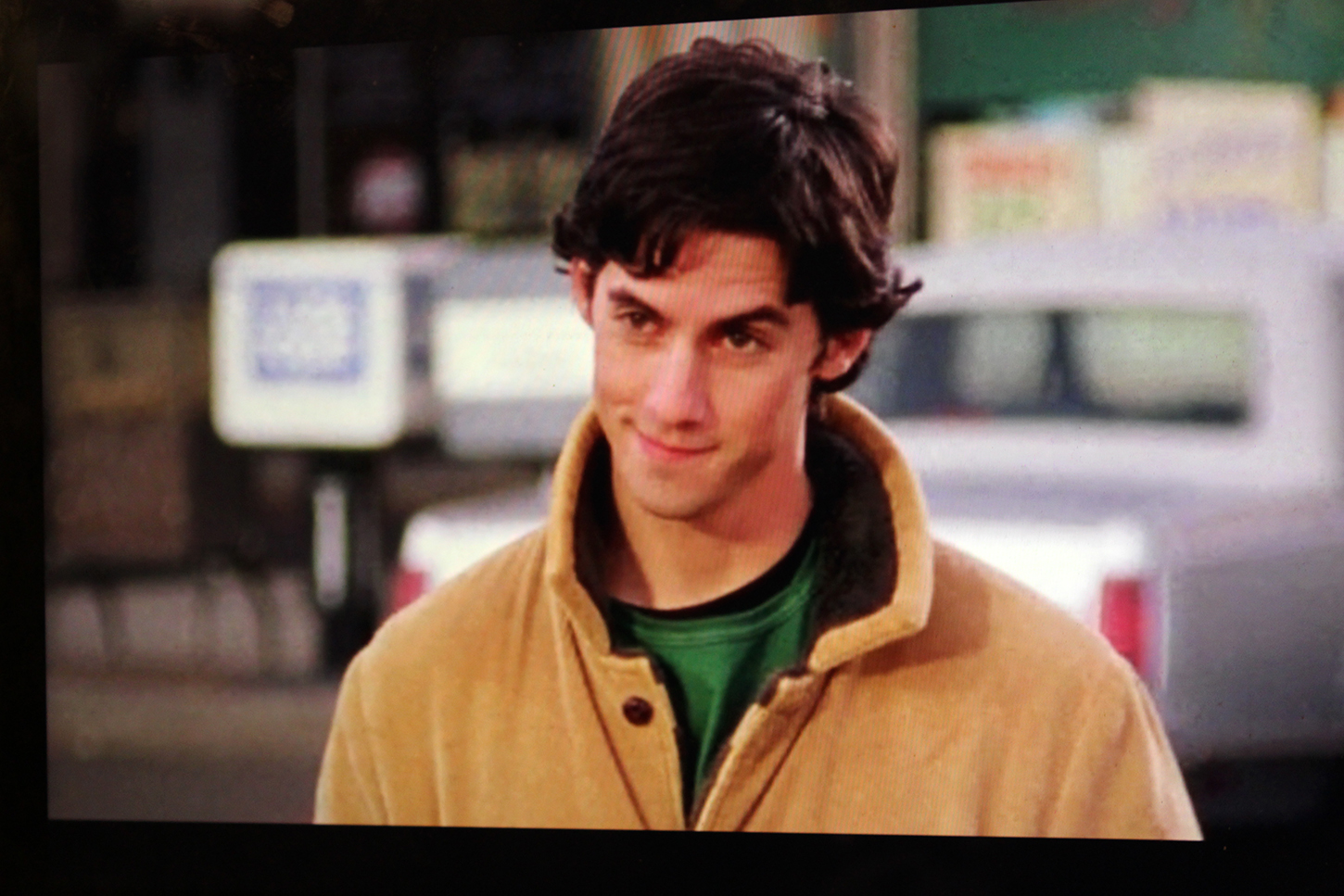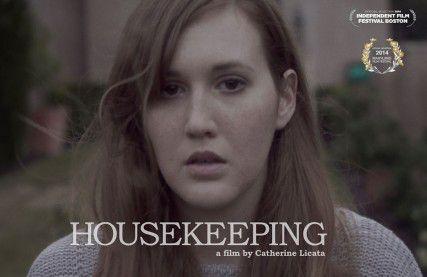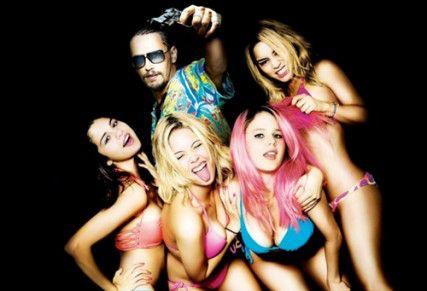
Selena Gomez, James Franco, Ashley Benson, Rachel Korine and Vanessa Hudgens of Spring Breakers
Wild teenagers, an abundance of alcohol and sun-kissed screenshots dance across controversial director/screenwriter Harmony Korine’s latest film Spring Breakers. Four college girls, Brit, Candy, Faith and Cotty are fed up with their boring college lives and want to do something different. What better chance than Spring Break?
Pretty Little Liars star Ashley Benson and former Disney stars Vanessa Hudgens and Selena Gomez break free from their stereotypical roles, depicting four girls with their minds set on having a spring break they’ll never forget. Their means of getting money quick? Rob a restaurant. But that idea quickly backfires after their subsequent arrest. After being bailed out by a shady drug dealer named Alien, played by James Franco, they embark on a wild trip to the beautiful Gulf of Mexico.
MUSE sat down with Harmony Korine and Ashley Benson to discuss the film:
Justin Soto: Ashley, you’re known for your role on Pretty Little Liars. Why the huge jump on to a provocative film?
Ashley Benson: I don’t know; I mean, I’ve been on that show for four years now, and I feel like people have just seen me in a certain way for such a long time. And I really wanted to do a film where I was different from anything I’ve ever done. And I read Harmony’s script and it was exactly what I wanted to do. And I liked how edgy it was — I liked how different it was. And I wanted a chance to work with Harmony, to work with James [Franco], and I wanted to do something different.
Harmony, in this film, and in Kids and Gummo, it seems like you portray adolescents as having a kind of invincibility. How do you feel from making Kids to Gummo to this? Do you feel that that’s changed with the adolescent age?
Harmony Korine: I would say that my guess is […] people are people. Adolescents, they always have the same urges, and at its base level, I would assume that it’s the same. But at the same time, the world has changed; and the way people communicate and socialize has changed.
Now it’s all kind of filtered through something completely different, something that’s more performance-based — it’s like a more performative, a more exposed cultural kind of thing now […] Whereas back in the day, it was more about kids trying to disappear, or people trying to find themselves. It was more of a shadow culture. Now … everything is on display, and filtered through some kind of technology.
Harmony, can you tell me about deciding to cast this film? I understand actresses like a change, but it seems like this is not something that their fan base is going to be able to see anyway. So I’m assuming this was a deliberate choice to pick a kind of unexpected cast for this. Can you talk about that some, please?
HK: Sure. But I disagree that their fans won’t see it. I mean, I think that their fans will also grow up, and eventually see it. So I think that we make a movie, and the movie exists forever, and so eventually people will find it. People that aren’t old enough to see it now will be old enough to see it in a few years, and hopefully they’ll enjoy it. I wanted to work with these girls, first and foremost, because they were the best for the part. They were the most interesting for the part.
And then, on top of it, I liked the fact that they were connected culturally to this kind of — almost this kind of pop mythology. And I thought it was an interesting counter to their perception and what they’ve done in the past. And I thought it was exciting for them. They were all at a place in their life where they wanted to try things that were more graphic, more extreme — a different type of acting. And so that was obvious, and that’s what they did. And it was great.
Harmony, you talk about wanting your audience to feel your movies in a physical way — why is that important to you?
HK: It just is, you know? […] I’ve always felt like I wanted to make movies that worked in that way, that worked [as] something that was not just a normal movie-watching experience, something that had another element to it, something that was more like a ride, or a game, or something that demanded some type of participation in some way, or some type of physical response.
I wanted the films to be beautiful, and be entertaining, but I also always thought about movies in a different way — in a way that was more encompassing, I guess, or more of a physical experience as opposed to just being told the story and being told what to think.
Ashley, what was the biggest challenge for you when you were filming Spring Breakers?
AB: I guess just the improv. We were able to improv a lot throughout the movie, and I’d never really had much experience with that. So I think that was really the only challenge […] I’d just never really done anything like that before and Harm [would] just make scenes up as we went along — which is super fun and rad. At first I was kind of insecure about it just because I really didn’t know what I was doing. But as we got more and more into filming it just became easier.
Harmony, why’d you think you needed to make Spring Breakers now? And do you think that it stands as a reflection of teenagers in America right now?
HK: I liked the storyline, and I liked the characters. It was a world I wanted to explore. Is it a reflection? […] I think it’s connected to youth culture in some way.
But at the same time, it was never meant to be a kind of documentary or an exposé on something. And it is more like a reinterpretation of those things. It’s something that’s more like a pop poem, or almost like the real world but pushed into something more kind of — I don’t know — hyper-poetic. And […] it works on its own logic. So I would say […] it’s connected to the culture, and maybe there’s a zeitgeist in some way. But it’s also something separate.
Harmony, what do you think when people refer to aspects of your movies as exploitative?
HK: Oh, I mean, whatever people want to say, it’s fine. I don’t really — it’s nothing to me. I never really understood that argument because you assume that in order to film, in order to make a movie, people understand they’re making a film. You’re not blindfolding somebody and drugging them and sticking them in front of a camera.





















































































































